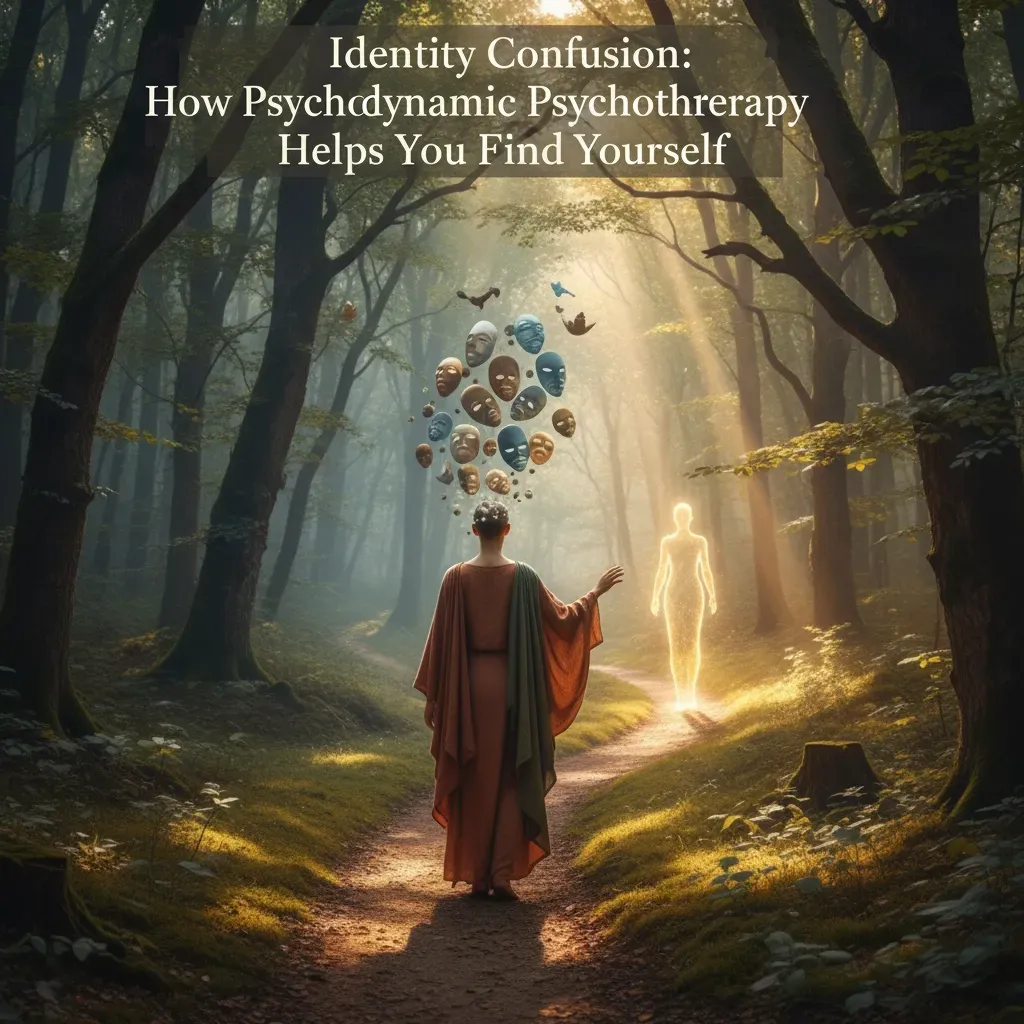Struggling With Anxiety? Here Are 7 Proven Techniques Your Therapist Wants You to Know
If you're reading this, you might be feeling that familiar tightness in your chest, the racing thoughts, or the overwhelming sense that anxiety has taken control of your life. You're not alone in this struggle—anxiety affects nearly 1 in 5 people each year. Many people wonder when to seek therapy for anxiety symptoms, what to expect in anxiety therapy, and whether anxiety counseling can truly help. At The Alternative Center for Therapy, we offer compassionate therapy for anxiety—both in-person via secure telehealth and anxiety therapy online—so you can receive support in a way that fits your life and honors your journey.
The beautiful truth is that anxiety doesn't have to define your story. Mental health professionals have spent decades refining evidence-based techniques that help you reclaim your peace and rediscover your inner strength. Below, we share seven of the best therapy techniques for anxiety relief—practical, therapist-backed tips from counselors for coping with anxiety that you can begin using today.
TECHNIQUE 1: COGNITIVE BEHAVIORAL THERAPY (CBT), REWRITING YOUR INNER NARRATIVE

Cognitive behavioral therapy for anxiety (often called CBT for anxiety) is one of the most researched and effective approaches. This gentle yet powerful therapy for anxiety helpsyou recognize the connection between your thoughts, feelings, and behaviors—and transform unhelpful patterns that fuel worry and fear.
CBT works by teaching you to become a compassionate observer of your own thoughts. Instead of being swept away by anxious thinking, you'll learn to pause and ask yourself questions like, "What evidence supports this fear?" or "Is there another way to look at this situation?"
For example, if you find yourself thinking, "Everyone will judge me if I speak up in the meeting," CBT helps you explore this belief with curiosity rather than judgment. You might discover that most people are focused on their own contributions, not scrutinizing yours. This isn't about dismissing your feelings—it's about creating space for more balanced, truthful perspectives to emerge.\
At The Alternative Center for Therapy, our licensed therapists use cognitive behavioral therapy for anxiety with personalized strategies that honor your unique story—so you build lasting skills for emotional resilience at a pace that feels safe.
TECHNIQUE 2: STRATEGIC BREATHING, YOUR INSTANT ANXIETY RESET
When anxiety strikes, your breath can become shallow and rapid, sending signals to your body that danger is near. The empowering truth: your breath can activate your body's natural relaxation response and help during counseling for panic attacks or moments of intense stress.
The *Staggered Inhalation Technique* offers a gentle, effective approach:
- Breathe in through your nose, filling your lungs about halfway
- Pause for just a moment, allowing stillness
- Continue breathing in slowly until your lungs feel comfortably full
- Pause again briefly, embracing the quiet
- Exhale gently and completely
Practice this nurturing cycle for several minutes whenever you feel anxiety building. It's always available—before a challenging conversation, during a stressful commute, or whenever you need to return to your peaceful center. In anxiety counseling, we pair these breath practices with grounding and mindfulness exercises for anxiety to create calm, body-based relief.
TECHNIQUE 3: GRADUAL EXPOSURE, RECLAIMING YOUR POWER STEP BY STEP
While avoiding anxiety-triggering situations might feel protective in the moment, it often keeps us trapped in cycles of fear. Gradual exposure therapy offers a different path, one where you slowly and safely reclaim the experiences that matter to you. It's a core part of social anxiety therapy and a powerful example of how counseling helps with anxiety in real-life situations.

This approach isn't about throwing yourself into the deep end. Instead, it's like building a ladder of courage, one gentle rung at a time. You might start by:
- Creating a list of situations that trigger anxiety, from the mildest to the most challenging
- Beginning with the least intimidating experience, perhaps saying hello to a neighbor
- Gradually working toward more meaningful goals, like attending a social gathering or speaking up in a work meeting
Each small step you take builds evidence that you're stronger and more capable than your anxiety wants you to believe. You're not facing this journey alone: your therapist walks beside you, celebrating each victory and providing support when challenges arise. This is how therapy helps with social anxiety—through safe practice, compassionate coaching, and steady progress.
TECHNIQUE 4: MINDFULNESS AND MEDITATION : FINDING PEACE IN THE PRESENT MOMENT
Mindfulness-based practices offer a caring shift in how you relate to anxious thoughts and feelings. Instead of fighting your experience, you learn to observe it with gentle curiosity—like clouds passing through the sky of your awareness.
This practice teaches you that thoughts and feelings are temporary visitors, not permanent residents in your mind. Through guided meditation, body scans, and mindful breathing, you develop the capacity to witness anxiety without being consumed by it. Here are a few simple mindfulness exercises for anxiety you can try:
- 5-4-3-2-1 grounding: Name five things you see, four you feel, three you hear, two you smell, one you taste
- Box breathing: Inhale for 4, hold for 4, exhale for 4, hold for 4—repeat for 2–3 minutes
- Compassion break: Place a hand over your heart and silently say, "This is hard. May I be kind to myself right now."
Acceptance and Commitment Therapy (ACT) and Mindfulness-Based Cognitive Therapy (MBCT) are especially helpful and promote psychological flexibility. These approaches are often part of counseling for anxiety and stress because they empower you to take meaningful action—even when anxiety is present.
TECHNIQUE 5: THOUGHT CHALLENGING: BECOMING YOUR OWN COMPASSIONATE COACH

Your thoughts have tremendous power to shape your emotional experience. Thought challenging helps you step back from automatic anxious thoughts and evaluate them with the same kindness you'd offer a dear friend facing similar struggles.
This technique involves learning to recognize cognitive distortions—those sneaky thinking patterns that amplify anxiety, like all-or-nothing thinking or catastrophizing. Through gentle questioning and reframing, you develop the ability to challenge unhelpful thoughts and create more balanced, truthful perspectives.
For instance, if you catch yourself thinking, "I always mess everything up," you might gently challenge this by asking, "Is this really true? Can I think of times when things went well?" This isn't about positive thinking—it's about honest, compassionate thinking that supports your well-being. In counseling for anxiety and stress, we practice these skills together until they feel natural.
TECHNIQUE 6: PERSONALIZED COPING TOOLKITS
BUILDING YOUR ANXIETY MANAGEMENT SANCTUARY
Every person's anxiety is unique, which means your coping strategies should be tailored to your specific needs and preferences. Building a personalized toolkit gives you concrete, practical strategies to implement when anxiety arises.
Your toolkit might include:
- Grounding techniques that engage your senses
- Positive affirmations written in your own words
- Physical items that bring comfort, like a smooth stone or essential oil
- Structured worksheets for reframing anxious thoughts
- Contact information for your support network
We also consider holistic approaches to anxiety counseling—like sleep routines, gentle movement, time in nature, faith or spiritual practices that speak to you, and nourishing daily rhythms. The key is having these tools ready, creating your own portable sanctuary of calm that travels with you. Your therapist can help you select and personalize the tools that fit your life.
TECHNIQUE 7: THERAPEUTIC JOURNALING
HONORING YOUR STORY AND TRACKING YOUR GROWTH

Structured journaling creates a supportive space to explore your anxiety with gentle curiosity and track your progress over time. This practice helps you identify patterns, triggers, and the strength you demonstrate each day as you navigate life's challenges.
Effective journaling might include prompts like:
- "What did I learn about myself today?"
- "How did I show courage, even in a small way?"
- "What am I grateful for in this moment?"
- "What support do I need moving forward?"
This isn't about perfection or having profound insights evbbbncvery day. It's about creating a consistent practice of self-compassion and awareness that honors your unique journey toward healing and growth.
WHAT TO EXPECT IN ANXIETY THERAPY
When you begin anxiety counseling with us, you can expect:
- A warm, judgment-free conversation where we listen and understand your story
- Clear goals that reflect what you want—less worry, better sleep, steadier mood, or confidence in social settings
- Personalized strategies, often blending CBT for anxiety, mindfulness, and exposure at your pace
- Between-session practice so skills become second nature in daily life
- Ongoing check-ins to adjust your plan and celebrate progress
This collaborative process is how counseling helps with anxiety—through steady support, practical tools, and compassionate guidance.
ANXIETY THERAPY ONLINE — PROS AND CONS
Online counseling for anxiety: Pros and cons to consider:
- Pros: Comfortable sessions from home, easy scheduling, no commute, access to bilingual counselors (English/Spanish), continuity even when traveling
- Cons: Requires a private space and reliable internet; some people prefer in-person presence for certain exposures
Many clients find anxiety therapy online increases consistency and makes therapy for anxiety more sustainable—especially during busy seasons or for parents and caregivers.
COUNSELING VS MEDICATION FOR ANXIETY DISORDERS
Both counseling and medication can be helpful for anxiety disorders. Counseling for anxiety and stress teaches long-term skills and addresses root patterns; medication can reduce acute symptoms. Some people benefit from a combination. We’ll collaborate with you—and, if you choose, your prescriber—to find the path that honors your values and goals.\
WHEN TO SEEK THERAPY FOR ANXIETY SYMPTOMS
Consider reaching out if you notice:
- Worry or panic that interrupts sleep, work, school, or relationships
- Avoiding people, places, or tasks because of fear (including social situations)
- Frequent physical symptoms like racing heart, chest tightness, or dizziness
- Persistent self-criticism, perfectionism, or restlessness - Panic attacks or signs of burnout and exhaustion
You don’t have to wait until things feel “bad enough.” Early support makes healing gentler.
YOUR JOURNEY TOWARD HEALING BEGINS TODAY
Learning to manage anxiety isn’t about eliminating all stress—it’s about developing healthier, more empowering ways to respond to life’s challenges. Each technique we’ve shared represents a pathway toward greater self-understanding, resilience, and peace.
Remember, healing isn’t linear, and you don’t have to walk this path alone. Professional support can offer personalized strategies, a safe, empathetic space to explore the root causes of your anxiety, and guidance to build lasting emotional resilience.
At The Alternative Center for Therapy, we understand that taking the first step requires courage. Our licensed therapists provide individualized anxiety counseling, social anxiety therapy, and counseling for panic attacks. We also offer bilingual counseling services and culturally attuned care that honors your unique background and experiences.
Whether you're navigating generalized anxiety, social anxiety, panic attacks, or anxiety related to specific situations, our evidence-based treatment approaches—like CBT for anxiety and mindfulness—can help you reclaim your life and rediscover your innate capacity for calm and joy.
You deserve support. You deserve healing. You deserve peace.
Take the first step today. Schedule your session or reach out to learn more about anxiety therapy online or in-person care. Let us walk beside you as you transform your relationship with anxiety and step into the life you truly want to live.


